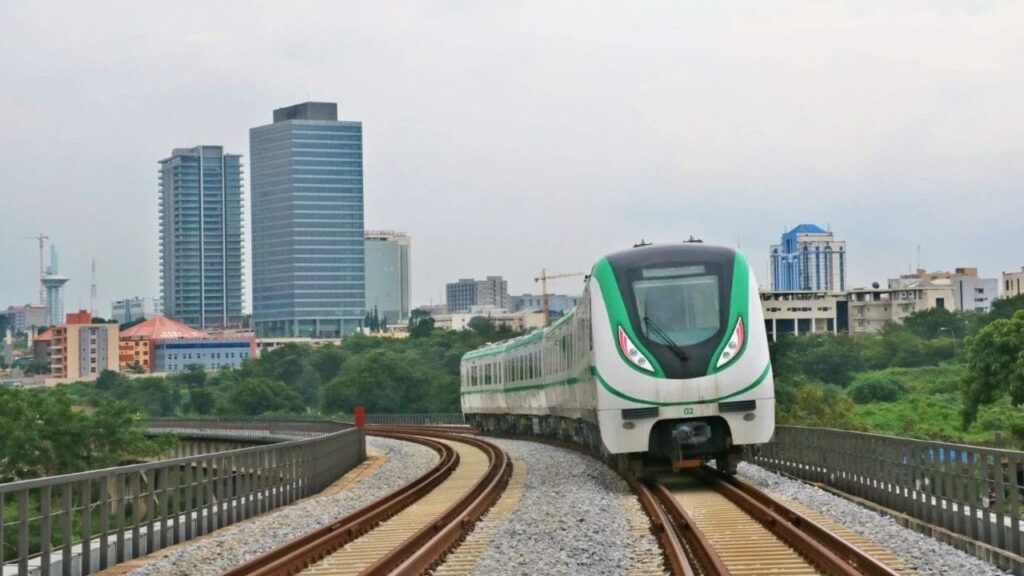In Summary
- This article curates data on Africa’s railway network rankings using verified statistics and expert insights
- It highlights the top ten African countries, their rail lengths, and interesting global rankings such as South Africa and Zimbabwe, exploring their unique roles in transportation and trade.
- The article emphasizes the ongoing improvements in these networks across the continent and shows how these railways are integral to Africa’s economic future.
Deep Dive!
Africa’s rail network is one of the continent’s most vital and expansive infrastructures, linking cities, industries, and neighboring countries. These extensive railway lines not only enable trade but also provide significant economic benefits. From the massive freight systems of South Africa to the historic railways of Egypt, the continent’s rail network is a testament to Africa’s evolving transportation landscape.
In this article, we’ll explore the top 10 African countries with the longest railway systems, highlighting how these networks contribute to regional economies and facilitate trade. Drawing from reliable sources and up-to-date statistics, we provide a comprehensive view of each country’s railway infrastructure, showing how they stand in the global rankings.
10. Zimbabwe
Zimbabwe ranks 10th in Africa for its railway system, spanning 3,427 km. Managed by the National Railways of Zimbabwe, this network connects key cities like Harare, Bulawayo, and Mutare. It plays a crucial role in transporting coal, minerals, and agricultural goods. However, aging infrastructure has hindered its potential, and modernization projects are underway to improve efficiency.
9. Nigeria
Nigeria boasts 3,798 km of railways, contributing to its vibrant transport sector. Its railway revival under the Nigerian Railway Corporation has introduced modern trains on routes like Lagos-Ibadan and Abuja-Kaduna. These railways are vital for passenger and freight services, supporting Nigeria’s booming economy.
8. Kenya
Kenya’s railway system stretches over 3,819 km, with the Standard Gauge Railway (SGR) as its crown jewel. Linking Mombasa to Nairobi and Naivasha, the SGR has revolutionized transportation and trade in East Africa. The country’s railways also connect to Uganda, forming a regional network critical for cargo transport.
7. Democratic Republic of the Congo
The DRC’s 4,007 km of rail lines navigate challenging terrains to connect vast regions of the country. The railway network is a lifeline for remote mining towns, enabling the transport of valuable minerals like copper and cobalt. However, the infrastructure requires significant upgrades due to years of neglect.
6. Algeria
Algeria’s 4,020 km railway system links major cities like Algiers, Oran, and Constantine, supporting its industrial sectors. The country has invested heavily in electrified rail lines, improving speed and efficiency. Algeria’s railways are also vital for connecting North Africa to the Mediterranean, boosting regional trade.
5. Tanzania
Tanzania’s railway network spans 4,097 km, playing a pivotal role in connecting the landlocked regions of East Africa to the Indian Ocean. The Tanzania-Zambia Railway Authority (TAZARA) line, linking Dar es Salaam to Zambia, is a notable feature. The government’s ongoing projects aim to expand the network and introduce modern high-speed trains.
4. Mozambique
Mozambique has a 4,787 km railway network, crucial for transporting coal and agricultural products to international markets. The Beira and Maputo corridors are major trade routes that link to neighboring countries like Zimbabwe and South Africa. The network’s efficiency has been bolstered by foreign investments in recent years.
3. Egypt
Egypt’s railway system, covering 5,085 km, is one of the oldest in Africa, dating back to the 19th century. The railways connect Cairo to major cities like Alexandria and Aswan, offering vital passenger services. Modernization projects, including high-speed rail, aim to boost the network’s capacity and reduce traffic congestion.
2. Sudan
Sudan’s 7,251 km railway network is the second-longest in Africa. It connects major cities like Khartoum and Port Sudan, facilitating trade and movement in the vast desert country. However, much of the infrastructure remains outdated, with efforts underway to rehabilitate key sections to enhance regional connectivity.
1. South Africa
South Africa tops the list with an impressive 20,986 km of railway lines, ranking 12th globally. Managed by Transnet, the network includes one of the world’s longest freight trains on the Sishen-Saldanha line, primarily for transporting iron ore. It also offers efficient passenger services like the luxurious Blue Train and the affordable Metrorail. South Africa’s railways are vital for its economy, connecting major industrial hubs and ports.
https://www.africanexponent.com/top-10-african-countries-with-the-longest-railway-lines-in-2025/


